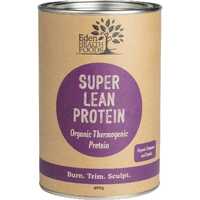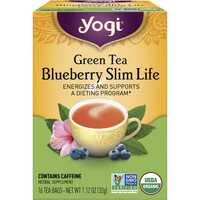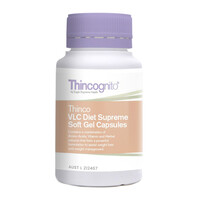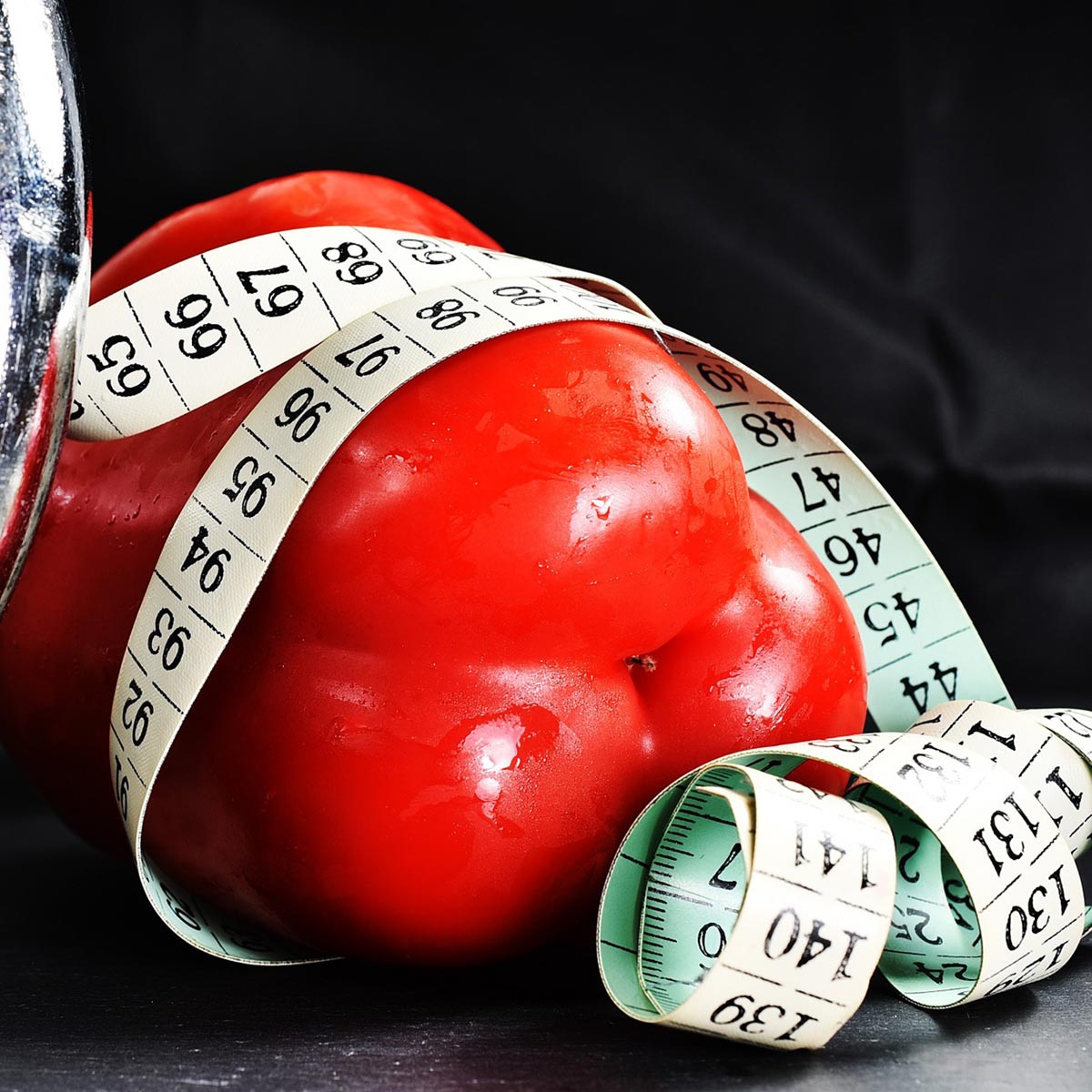The word 'diet' describes a variety of food intake measures, some of which are much healthier than others. When people diet, they eat particular foods in a regulated manner in an effort to influence body weight or composition. Diet plans often pay strict attention to calorie intake and food combinations, and some even promote fasting on a short-term basis. Ultra-strict eating is rarely effective, however, and food avoidance can also be very unhealthy.
Like many things in life, the best diets are the most sustainable and least extreme. When balanced food intake and regular exercise are combined with natural superfoods and supplements, you can experience real benefits without the dangers of repeated short-term dieting.
Let's take a look at healthy weight loss in the 21st century. We'll review the history of weight loss, look at sustainable weight loss plans, and mention specific diets and products to help you find your ideal body shape.
A Short History of Dieting & Weight Loss
The history of weight loss is almost as old as human civilisation itself. While modern people are larger than ever, at least in the Western world, ancient cultures also struggled with excessive weight and uncompromising beauty standards. The word 'diet' has not always been bad news. In fact, it comes from the Greek word 'diaita', which describes a holistic approach to living that merges physical and mental health.
Unfortunately, this inclusive notion was lost over the centuries, with 'dieting' slowly transformed into a series of narrow weight loss regimes. Synergy between body and mind fell out of favour in the Common Era, with many early Christians believing the physical body was the enemy of the soul. Christians noted the dangers of compulsive eating habits, gluttony was recognised as a deadly sin, and the growing disparity between body and spirit helped to fuel obesity and guilt.
Negative attitudes to fat weren't always religious, however; sometimes they were very practical. For significant portions of our history, huge segments of the population haven't had enough food to eat. It was considered immoral to be overweight in this environment, and wealthy classes were often ridiculed for their large round bodies. Henry VIII was the butt of many jokes during the 1500s, and in 1660, when famine swept Europe, the rather portly George IV was often called the 'Prince of Whales.'
The world's first diet book was published in 1583, and amazingly, it's still in print. Written by Luigi Cornaro, How to Live for a Hundred Years and Avoid Disease is all about living long, eating well, and staying sober. Giacomo Castelvetro wrote The Fruits, Herbs and Vegetables of Italy in 1614, criticising the English for their unhealthy food and inventing the Mediterranean diet along the way. As trade routes and agriculture improved food security, people got bigger, and an entire industry developed around dieting. With countless books published and advice coming from everywhere, the modern dieting age had truly begun.
The first low-carb diet was introduced in 1825, the first diet retreats started a few years later in 1830, and the first truly popular diet was invented in 1860. Calorie counting was introduced in 1918, and over the next 100 years, countless weight loss diets were developed all over the world. After many decades of restrictive eating and unhealthy diet regimes, society now enjoys a much better relationship with food. While obesity is a bigger problem than ever and unsustainable diets are still followed in huge numbers, we know more than ever about nutrition and how it impacts a healthy lifestyle.
The Dangers of Weight Loss Diets
Before we talk about sustainable weight loss products and plans, it's important to address the dangers associated with weight loss. Dieting has a bad name in many circles, with strict weight loss efforts often unhealthy and difficult to sustain. While there are lots of effective ways to lose weight and keep it off over time, it's important to avoid extreme diets and anything with a short-term focus. When choosing a diet plan, you should always be careful of anything that makes big promises or seems too good to be true.
There are many potential dangers associated with weight loss, including malnutrition, electrolyte imbalances, and muscle loss. There are also lots of potential side effects, from headaches and fatigue to dizziness, irritability, and constipation. The dangers of rapid weight loss generally increase over time, especially when they restrict essential nutrients such as protein.
Along with these very real dangers, many weight loss routines are also subject to failure. While good results can sometimes be achieved on a short-term basis, they are rarely sustainable over a long period. Unhealthy diets often set up unrealistic expectations, with failure affecting future motivation and leading to feelings of guilt. Instead of following a strict diet, most people get better results by focusing on healthy eating and regular exercise. While there are lots of effective weight loss and body management products on the market, they only work to augment an already healthy and sustainable lifestyle.
Sustainable Weight Loss Plans
Healthy weight loss requires a plan. It's not about following a strict diet or doing something extreme for a few weeks; it's about setting up healthy habits that you can repeat for the rest of your life. It all starts with good-quality natural food, including a balanced combination of protein, carbohydrates, and healthy fats. Exercise is also vital, with real weight loss involving a simple formula where energy output is more than energy input.
There are some healthy and effective diets, but they're very different to rapid calorie-restriction plans. These diets are often inspired by a particular culture or scientific approach, and they have proven good results over a long period. Instead of strict eating regimes based on avoidance, these diets focus on healthy natural ingredients and sustainable eating patterns.
The following examples are widely respected and popular all over the world:
Mediterranean diet
Loved by almost everyone, this diet is all about fresh natural ingredients and flavoursome food combinations. The Mediterranean diet consists of vegetables, fruits, nuts, whole grains, and legumes. Olive oil is central to most dishes, and dairy and seafood are also consumed on a moderate basis. This diet doesn't have excessive sugar products or processed foods, and there's also very little red meat.
Scandinavian diet
From the colder side of Europe comes the Nordic or Scandinavian diet. The food traditionally eaten in the north differs considerably from the Mediterranean diet, which highlights the importance of eating for your location and season. The Scandinavian diet has lots of healthy fats, lean proteins, and complex carbohydrates. Fish and seafood are popular, rye and oats are preferred, and once again, there are very few processed foods or sugars.
Keto diet
The ketogenic diet is one of a few modern diets to receive positive attention from nutritionists. It has a very low carbohydrate intake and replaces excessive carbs with lots of healthy fats. This diet is designed to put your body in a metabolic state called ketosis, which means fat is burned for energy instead of carbs. However, while the keto diet has shown significant promise for weight loss and other conditions, it can also lead to low blood pressure, constipation, and nutritional deficiencies. Like all modern diets, the ketogenic diet is not for everyone.
DASH diet
This diet stands for Dietary Approaches to Stop Hypertension. It is prescribed by some doctors to treat high blood pressure, which is a significant problem in Western society. High blood pressure can lead to heart disease, stroke, and kidney disease, among many other conditions. The DASH diet limits unhealthy fats while increasing protein, fibre, and minerals such as potassium, magnesium, and calcium. Common ingredients include fruits and vegetables, whole grains, fish, poultry, nuts, and beans. While this diet is backed by science, weight loss is a desirable side effect, not its primary purpose.
Healthy Weight Loss Products
Eating whole foods and doing regular exercise are keys to weight loss, but sometimes you need a helping hand. Dedicated nutritional supplements and weight loss products can play a role, as long as you realise they're not a magic bullet. For example, nutrient-rich superfoods and supplements can be a great way to consume lots of vitamins and minerals without needing to eat fats or carbs. Protein powders and shakes can also play an important role, boosting your metabolism and helping you feel full without needing to eat unhealthy foods.
Superfoods and supplements
Superfoods and supplements include a wide array of nutrient-rich products. Popular examples of superfoods include spirulina, quinoa, goji berries, cacao, camu camu, chia seeds, chlorella, hemp seeds, and so many more. Dietary supplements are taken to boost nutrient levels, with ingredients either derived synthetically or extracted from natural sources. While superfoods and supplements don't magically make you lose weight, they offer an ultra-dense nutrient source. When you get everything you need from whole foods, superfoods, and natural supplements, you may require less food mass and crave fewer unhealthy products.
Protein powders and shakes
Protein powders can be an effective part of a diet regime. Whether you add them to soups, shakes, or smoothies, these powders can assist with weight loss in some scenarios. There are two primary reasons why protein powders may be effective for weight loss. Firstly, consuming protein supplements has shown promise in some weight loss studies while also limiting multiple cardiovascular risk factors. The second reason is even more simple. When you consume protein shakes and other dietary proteins, you can fill yourself up quickly and efficiently. When combined with a positive mindset, this can help to limit unhealthy or excessive eating.
If you're looking to lose or manage weight in a way that's sustainable, Healthy Being has everything you need. When a balanced diet and exercise regime is combined with superfoods, supplements, and protein products, you can find your ideal body shape and live your best possible life. Make sure you check out our website today and enjoy free shipping options across Australia and worldwide delivery!


 Certified Organic
Certified Organic Vegan Friendly
Vegan Friendly  Vegetarian
Vegetarian Organic Ingredients
Organic Ingredients Dairy Free
Dairy Free Gluten Free
Gluten Free Keto Friendly
Keto Friendly
































